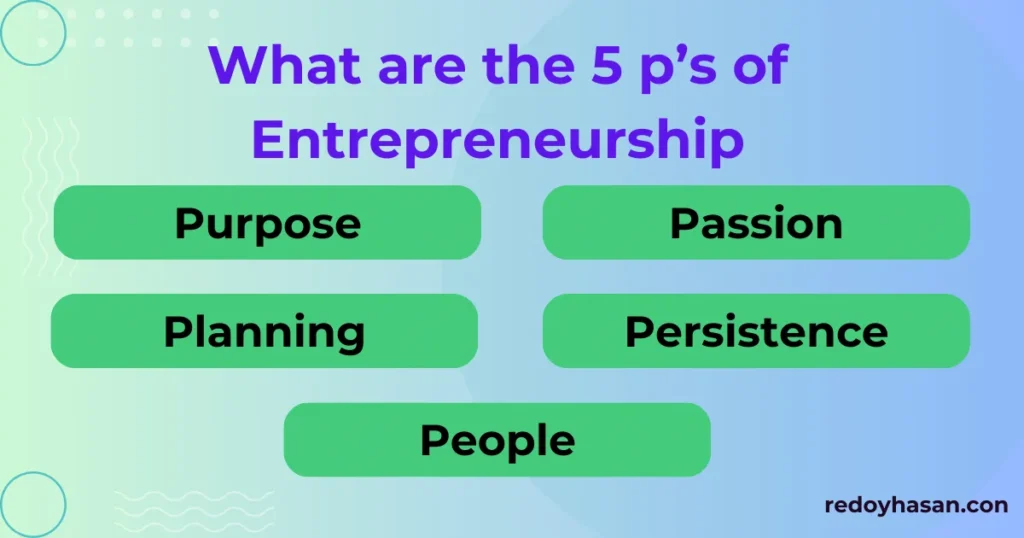
Welcome to our comprehensive guide on how to pass Florida Business and Finance Test! If you’re planning to launch a career in the construction industry within the state of Florida, passing this exam is a crucial step towards obtaining your contractor’s license. In this blog post, we will walk you through everything you need to know about the Florida Business and Finance Test, including its purpose, format, and key study strategies. So, let’s dive in and set you up for success!
Understanding the Florida Business and Finance Test
The Florida Business and Finance Test is designed to assess your knowledge and understanding of the business and financial aspects related to running a construction business in the state. It covers a wide range of topics, including accounting principles, project management, contracts, insurance, and more. The purpose of this exam is to ensure that contractors have the necessary skills and knowledge to effectively manage their businesses and comply with legal requirements.
To pass this test, you will need to demonstrate a strong understanding of financial management, business management, contract administration, project management, risk management, and safety in the construction industry. It is essential to familiarize yourself with these key areas and develop a comprehensive understanding of the concepts and principles involved.
Exam Format and Content
The Florida Business and Finance Test consists of 120 multiple-choice questions that you must complete within a time limit of 6.5 hours. These questions are divided into different content areas, each with its own weightage in the overall scoring. It is important to have a clear understanding of the content areas to allocate your study time effectively. Here are the major content areas and their approximate weightage:
1. Financial Management (20%)
This section focuses on topics such as financial statements, budgeting, cost control, and cash flow management. To excel in this area, familiarize yourself with accounting principles, financial analysis techniques, and financial planning strategies for construction businesses. Understand how to interpret financial statements, calculate key financial ratios, and make informed decisions based on financial data.
2. Business Management (15%)
In this section, you will be tested on your knowledge of business organization, risk management, marketing strategies, personnel management, and legal requirements for running a construction business. Understanding different business structures, employment regulations, marketing principles, risk mitigation strategies, and legal obligations is essential for success in this area. Familiarize yourself with topics such as business planning, organizational structures, marketing techniques, employee management, and legal compliance.
3. Contract Administration (20%)
This section assesses your understanding of contract documents, contract law, bidding processes, change orders, and dispute resolution mechanisms. Familiarize yourself with different types of contracts commonly used in the construction industry and understand the key elements of a contract. Study contract negotiation techniques, change order procedures, payment terms, and dispute resolution methods. Gain knowledge about relevant laws and regulations governing construction contracts in Florida.
4. Project Management (25%)
Project management is a critical aspect of running a successful construction business. This section covers topics such as project planning, scheduling, resource allocation, quality control, and safety management. Develop a strong understanding of project management methodologies such as critical path method (CPM) and pert charts. Study project scheduling techniques, resource allocation strategies, quality management principles, and safety regulations in the construction industry.
5. Risk Management (10%)
Construction projects involve inherent risks that must be effectively managed to ensure the success of your business. This section evaluates your knowledge of risk identification, assessment techniques, risk mitigation strategies, and insurance coverage requirements. Study risk management frameworks such as the risk management process (identification, analysis, evaluation, treatment). Understand different types of insurance coverage available for construction projects and the importance of maintaining adequate insurance policies.
6. Safety (10%)
Safety is paramount in the construction industry. This section tests your understanding of safety regulations, hazard identification techniques, accident prevention strategies, and OSHA compliance. Familiarize yourself with OSHA standards related to construction safety and learn about hazard communication procedures. Understand how to identify common hazards on construction sites and implement effective safety measures.

Study Strategies for Success
Now that we have covered the exam format and content areas, let’s discuss some effective study strategies that can help you pass the Florida Business and Finance Test with flying colors:
Understand the Exam Blueprint
Start by thoroughly reviewing the exam blueprint provided by the testing authority. This blueprint outlines the content areas and their weightage in the exam. Use it as a guide to plan your study schedule and allocate time according to the importance of each section.
Understanding the exam blueprint will help you prioritize your study efforts and focus on the areas that carry more weight in the overall scoring. Allocate more time to areas where you feel less confident or have less prior knowledge.
Review Relevant Reference Materials
The Florida Business and Finance Test has a list of approved reference materials that can be used during the exam. Make sure you have access to these materials and spend time reviewing them. Some recommended references include construction business management textbooks, legal documents related to contracts and regulations, accounting manuals for construction businesses, and project management guides.
Reading these reference materials will provide you with a solid foundation of knowledge and help you understand the concepts covered in the exam. Take notes while studying to reinforce your understanding and create a handy reference for future revision.
Take Practice Exams
Practice exams are invaluable in preparing for any test. Look for reputable study materials or online resources that offer practice exams specifically designed for the Florida Business and Finance Test. These practice exams will help you familiarize yourself with the exam format, assess your knowledge gaps, and improve your time management skills.
Taking practice exams under simulated test conditions will not only help you gauge your readiness but also accustom you to the pressure and time constraints of the actual exam. Analyze your performance on practice exams to identify weak areas that require additional focus during your study sessions.
Join Study Groups or Classes
Studying with others can provide additional insights and support. Consider joining study groups or enrolling in classes specifically tailored for the Florida Business and Finance Test. Collaborating with fellow test-takers can help you gain different perspectives on complex topics and enhance your understanding of the subject matter.
Engaging in discussions with peers can help solidify your knowledge by explaining concepts to others or seeking clarification on topics that may be challenging for you. Additionally, studying in a group setting allows you to benefit from collective knowledge and share study resources.
Create a Study Plan
Develop a study plan that suits your schedule and learning style. Break down the content areas into manageable chunks and allocate specific study time for each topic. Set realistic goals and track your progress regularly to ensure you are staying on track.
A well-structured study plan will keep you organized and motivated throughout your preparation journey. Create a timeline leading up to your exam date, marking out specific study sessions for each content area. Prioritize topics based on their weightage in the exam blueprint.
Focus on Weak Areas
Identify your weak areas through practice exams or self-assessment quizzes. Once you know where you need improvement, dedicate extra time to those subjects. Seek additional resources such as textbooks, online tutorials, or expert guidance to strengthen your understanding in those areas.
It’s natural to have stronger areas and weaker areas among the content areas covered in the exam. By identifying your weaker areas early on in your preparation, you can allocate more time to study those topics thoroughly and gain confidence in them before exam day.
Utilize Flashcards or Mnemonic Techniques
To memorize important concepts or key terms, create flashcards or use mnemonic techniques that suit your learning style. These tools can help reinforce your understanding of complex topics and make revision more engaging.
Flashcards are particularly useful for memorizing definitions or key formulas that are frequently tested in the exam. Mnemonic techniques such as acronyms or visual imagery can help you remember complex concepts by associating them with familiar or memorable cues.
Time Management Practice
Managing your time effectively during the actual exam is crucial. Practice answering questions within the allocated time limit during your study sessions. This will help you develop a sense of pacing and ensure that you complete all questions within the given timeframe.
Simulating timed practice sessions will train your brain to work efficiently under time pressure. It will also help you identify any time-consuming question types or sections that require extra attention during the actual exam.
Stay Calm and Confident
On the day of the exam, it is important to stay calm and confident in your abilities. Get enough rest the night before the test, eat a healthy breakfast, and arrive at the test center early to minimize stress factors. Remember that you have prepared thoroughly, and trust in your knowledge and skills.
Maintaining a positive mindset is crucial for performing at your best during the exam. Remind yourself of all the hard work you have put into your preparation journey and approach each question with confidence.
Additional Tips for Success
In addition to the study strategies outlined above, here are a few extra tips to maximize your chances of passing the Florida Business and Finance Test:
- Read each question carefully before selecting an answer to avoid misinterpretation.
- Eliminate obviously incorrect options before making your final choice.
- Manage your time wisely during the exam by allocating sufficient time for each question.
- Use process of elimination when unsure about an answer by eliminating options that are clearly incorrect.
- Flag difficult questions for review later but avoid spending too much time on a single question.
- Don’t panic if you encounter unfamiliar terms or concepts during the exam; rely on your understanding of fundamental principles.
- Take breaks during the exam if allowed to refresh your mind and maintain focus.
- Stay positive throughout the test; a positive mindset can significantly impact your performance.
By following these additional tips, you can optimize your performance during the exam and increase your chances of achieving a passing score.
Conclusion
Congratulations! You have reached the end of our comprehensive guide on how to pass the Florida Business and Finance Test. By understanding the exam format and content areas, implementing effective study strategies, and adopting additional tips for success, you are well-equipped to tackle this important step towards obtaining your contractor’s license in Florida. Remember to stay focused, stay confident, and give it your best effort on exam day. Good luck!


